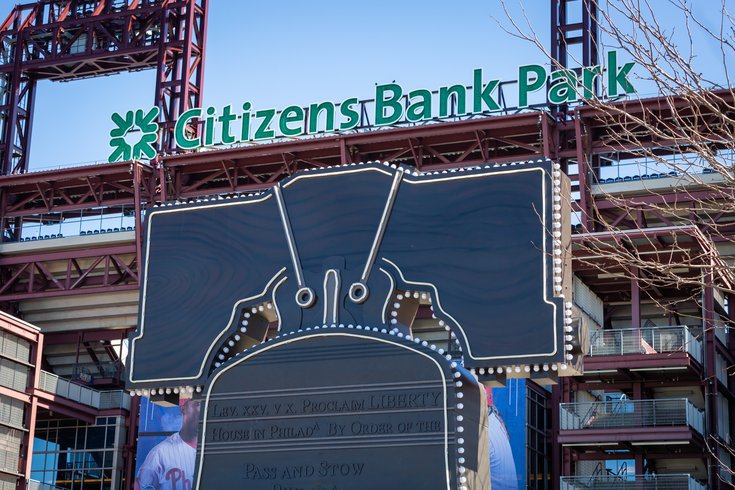
August 21, 2023
 Thom Carroll/for PhillyVoice
Thom Carroll/for PhillyVoice
A new entrance at Citizens Bank Park's first base gate allows fans attending Phillies games to enter the stadium using facial recognition technology rather than presenting a ticket.
Starting today at Citizens Bank Park, Phillies fans will have the option to enter the stadium using facial recognition technology instead of presenting their tickets to be scanned by event staff.
The Phillies will be the first team to test the MLB's new Go-Ahead Entry program, which has fans upload their selfies on the MLB Ballpark app, the league's official ticketing platform. As fans enter the ballpark using a special entry at the first base gate, their tickets will be authenticated by a camera that recognizes them and validates their account information.
The technology debuts for today's 6:40 p.m. game against the San Francisco Giants.
“(Fans) don't have to get out a phone or even stop," Karri Zaremba, MLB's senior vice president for ballpark experience and ticketing, told KYW Newsradio. "It's a free-flow, full walking speed experience."
Ticket-holders who want to use the tech will first need to sign up for Go-Ahead Entry using their MLB Ballpark accounts. From there, they'll be instructed to take selfies that are used for identification at the gate.
None of the images taken of fans are stored on file. According to Zaremba, they're deleted immediately after the facial recognition data is converted into unique, numerical tokens tied to fans' MLB Ballpark accounts. This means fans only need to take the selfie once. Though images won't be stored, data about users' faces will.
MLB views the technology as saving fans' time entering the ballpark; an MLB spokesperson likened it to E-ZPass for motorists going through highway tolls.
For fans attending games in groups, only one adult is required to upload a selfie on the app. That person's account will hold the tickets for everyone in the group. The camera at the ballpark gate will scan the faces of everyone in the group to verify the number of tickets held by the account-holder. A ballpark greeter also will be there to help fans who need assistance.
Children must be with registered parents or legal guardians to go through the facial recognition scanner. Otherwise, minors will only be able to get into the ballpark using standard entry, according to the program's FAQ page.
If a member of a group does not want to pass through the scanner, their ticket should be transferred to them with the MLB Ballpark app. The same is recommended if group members are to enter the stadium separately. Fans who wish to exit the program can do so in the app.
The Phillies and the MLB say the program will follow, and in some cases exceed, industry standards for protecting fans' information from unauthorized access and use.
"The security, integrity, and confidentiality of your information are extremely important to us," the team's FAQ says.
Facial recognition and other biometric technology is being used in a growing number of settings, most notably as a form of password protection and in public settings like airports. Although the technology has been touted as a potential game changer for data security and law enforcement, it also carries significant concerns about privacy and the protection of civil liberties, especially when paired with advances in artificial intelligence.
In the context of sports venues — particularly in boisterous places like Philly — one of the biggest questions about facial recognition is whether its true aim is to help people get inside or to help the stadium keep unwanted people out.
In New York City, Knicks and Rangers owner James Dolan has used facial recognition to ban people from attending Madison Square Garden and other properties if they are involved in litigation against his businesses. The policy extends not just to lawyers directly involved in those cases, but all lawyers at firms deemed to be threats to Dolan's interests. The policy prompted a lawsuit last December against Dolan's company on behalf of those who have been turned away from sports games, concerts and other events.
It's possible to imagine a future scenario in which MLB stadiums are able to pick people out of crowds and enforce bans more easily. The league spokesperson said Thursday that the MLB understands and appreciates the concerns some fans may have, but emphasized that the technology is meant to ease entry into stadiums.
The Phillies hope to expand Go-Ahead Entry to other gates beginning next season, after the team and MLB have evaluated the pilot program. At that point, the league may introduce Go-Ahead Entry at other ballparks.